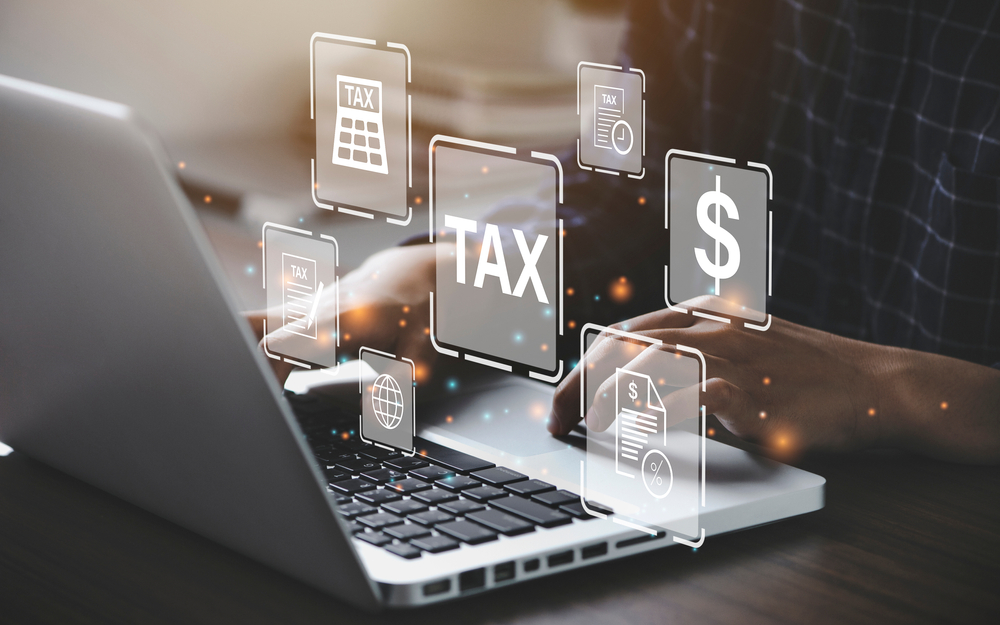More people are getting involved in investments and trading than ever before. In the past, it was necessary to involve a broker in these deals, and for many, trading seemed to be the realm of the elite.
Nowadays, with the plethora of trading apps for mobile devices, and websites selling NFTs, cryptocurrencies, and allowing stock trading, anyone can join in.
Even PayPal is now allowing its users to invest in crypto for as little as a few dollars
One area that has really surged in recent years is day trading. Because anyone can involve themselves in this activity, it is often largely self-taught. Meaning, that some of the legal aspects could be missed, namely, taxation.
Do day traders need to pay tax on their earnings, and if so, how regularly?
What is Day Trading?
If you are a complete newcomer to this area then you may be wondering what day trading actually is. Well, it is pretty much as it sounds.
Individuals take part in buying and selling shares over the period of one single day. The intent behind this is to profit by gaining small amounts per trade.
Day traders are not interested in long-term investments, only in making regular profits on each trade.
Although the name implies that these traders are working away every day buying and selling, there are a number of rules behind day trading.
Firstly, a day trader can only make three trades in a five-day period. Any more than this and they will be flagged up. This is because they will then be seen as a pattern day trader. At worst, this could lead to your chosen platform banning you for some time.
According to The Balance you need at least $25,000 in your account to be able to day trade. This is another important rule to understand and if it falls below this amount you will not be able to trade again until you have deposited the difference.
How Popular is Day Trading?
There were many reports over the lockdown periods of how day trading was seeing great interest from the general public. It is one of the most popular ways to create an income for oneself while working from home.
In a time when unemployment was rising, many decided to take their casual trading habits to another level.
This has led to many resources and blogs online. Just looking at YouTube or sites such as Matt Gianno’s Blog will show you just how many people are now interested in day trading.
By the end of November, there was believed to be somewhere in the region of 1.65 million active day traders in North America alone. It is also believed that around 10 million day traders are working globally today.
However, day trading isn’t possible everywhere. In mainland China, for instance, day trading is banned.
Do You Need to Pay Tax on Day Trades?
Plenty of people would like to save money on their taxes. People use accountants to learn how to save money on property taxes.
They look to offset vehicle purchases against business expenses. Of course, if there is a legal way to save some money on tax, most individuals will take it.
When it comes to day trading, if you are creating gains, you will have to pay tax, unfortunately.
Stocks and bonds are treated by the IRS as capital assets. This means that if you create a profit when you sell them you will have a capital gain. If you sell for less than you paid for them, you will have a capital loss.
While you are trading to make a profit, there is at least a slight silver cloud in the way the IRS treats these capital assets.
You can offset your capital losses against your capital gains thus reducing your tax bill.
Long-term investors are treated more favorably than short-term ones. So where a long-term capital gain will be taxed at 15%, your day trades could be taxed at 28% or even higher.
It is important then, as a day trader, to put aside money for future tax payments. You can fill out form 8949, which will need to match the information your broker provides on your gains and losses.
How Can You Lower Your Tax Payments From Day Trading?
 While you cannot avoid paying tax unless you wish to incur the wrath of the IRS, which is never recommended, you can reduce how much you pay.
While you cannot avoid paying tax unless you wish to incur the wrath of the IRS, which is never recommended, you can reduce how much you pay.
You are allowed to deduct a maximum of $3,000 of your capital losses each year to reduce your tax bill.
However, if you have bigger losses, you can carry some of those over to the next year thus reducing that bill.
You can also try to estimate your tax and make some payments throughout the year. This can offset penalties and interest and lighten the load.
There is also a strategy to take a loss on purpose to avoid paying more tax. However, in this instance, you must be careful not to breach the wash sales rule.
This is where stock is sold at a loss and then repurchased within 30 days. There are other rules pertaining to wash sales, and as a day trader, it is worth noting them.
Perhaps if you wish to become a day trader and save tax you should just look for tips for becoming a better bookkeeper or hire an accountant.
Is Day Trading Safe?
CNBC reported on how many people were getting into day trading and warned of the risks for the uninitiated. Many experts were warning against using savings and other investments to begin day trading.
One of the risks of day trading is using mobile apps. Many of these allow free versions that make trading look easy by allowing wide margins.
This often lures individuals into believing that they are going to make money when trading with real cash.
Trading can be very lucrative though. The problem lies when individuals don’t spend the time researching how day trading works, and the strategies and risks behind it.
However, according to Zippia, the average day trader is making over $118,000 per year. So, it is clear then, that if you know what you are doing, and it seems many do, then say trading can be safe.
The key is simply to set a trading budget and never be tempted to break your own rules. Trading shouldn’t be about gambling, and emotions should be kept in check.
Thankfully, numerous tools can help in this regard.
What Tools Can You Use for Day Trading?
There are too many to be listed here, but there are many tools that help with technical analysis, and there are strategies for price action.
Price action is used extensively by day traders, but other popular tools include EMA clouds. This is used to see how stocks have performed and how they are likely to head in the future.
They are often used for long-term investments, but day traders certainly use them too.
Summary
If you are thinking of becoming a day trader it is important to delve deep into the subject and learn as much about it as you can.
One important area is understanding the taxation of day trading. Like all capital gains, day trades are subject to tax. Fully understanding them will mean you can offset losses, and even carry some over to the next year.
Paying tax throughout the year will result in a much more comfortable position than being hit with a huge bill later on too.

